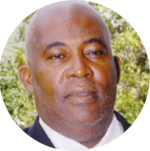
WELCOME students to another lesson in the Open School for the second term of the academic or school year 2023 to 2024. The school is open to parents, guardians, teachers, students and members of the public. It is my hope that students will acquire knowledge and skills on children with learning disabilities.
At the end of the lesson, students should be able to (1) Explain, in their own words, the phrase learning disabilities (2) Give two examples of learning disabilities in children.
There are many children at home and students at schools in St. Lucia, the Caribbean and the world over, with learning disabilities or learning difficulties (LD).
Now all students learn in different ways and have different strengths and challenges. These learning disabilities or difficulties can affect student’s ability to learn.
Now what are learning disabilities? Learning difficulties is a general term for varying groups of disorders which give children significant difficulties in listening, speaking, reading and writing,
Indeed, these are four major skills in English Language which children or students need in educational development.
Now how could parents and teachers identify or detect children and students with learning disabilities? (a) delays in achievements; (b) Attention Deficit; (c) Hyperactivity or impulsiveness; (d) Poor Motor Coordination; (e) difficulty solving problems; (f) Reversing letters, words or numbers; Difficulty with self-motivated activities; (g) constant reliance on teacher and classmates for assistance with classwork or homework.
Indeed, I have stayed away from giving you the educational or scientific terms which would give you some difficulties in understanding the important issues.
Now let us look at the various disabilities:
Delays in achievements. Students delay tasks or activities because they just do not feel like doing them. Many of those students lack confidence in themselves. Now if we do not believe in ourselves or our abilities, we may delay starting a task. Also, many children cannot manage time. They would decide that they would do the home work after their afternoon snack at home. Now, when that time comes, they will postpone the task for after supper. And they try to rush it just before they leave home for school the following day.
Students with attention deficit also have behavioural problems. They may be unable to control their behaviour, and have difficulty remaining still and paying attention. Such students may be labelled impulsive or hyperactive.
I wish to point out that many of those students may not be overactive but may be unable to focus attention long enough or well enough to learn.
Hyperactivity or Impulsiveness. Many students have the tendency to act without thinking, especially those with learning difficulty. For example, when asked a question by the teacher, in their haste to give the answer, many impulsive students do not think of the question but hastily give the incorrect answer.
Poor motor coordination. Students with poor motor coordination may have difficulty in catching or throwing a ball to its target, tying a shoelace or shaping letters. Generally, they may have difficulty getting different parts of the body to work together,
Difficulty solving problems. From a classroom teacher’s point of view, students may have difficulty solving problems because the basic concepts are not clear; meaning that the students have not understood the concept completely.
Now this may be because of a lack of practice or the teaching method used by the teacher. Let me inform you that after a concept is taught, students must get time to practices. Now that is very easy in Mathematics, since the students have many exercises to help them practice the concept just taught.
Indeed, the teaching method may not have enabled the students to understand the concept. The teacher would have to resort to other methods for teaching the concept. If the teacher is trained, that could be a less challenging matter. It is simply a matter of reteaching.
Reversing letters, words or numbers. For example, many students with learning disability will write the letter b for d; q for p and 6 for 9. This is due to poor memory as well as weaknesses in visual processing skills. By visual processing I mean that the brain is having difficulty in processing visual information. By processing I mean by coordination a series of actions.
Constant reliance on teachers and students. Many students constantly rely on their teacher or peers or classmates to help them with their classwork or homework. I have known cases where students are ready to compensate their classmate to help them with their school work.
At this point, I wish to give you some information on emotional and behavioural disorders in teaching and learning.
All students are likely to have emotional problems at some point in their lives. For example, separation of children, fear of certain animals, panic about a weather condition, fear of bullying in school, and several others. Now students with long lasting emotional problems with require special education.
Now in the case of students with learning disabilities, the disorder is more likely to be boys than girls, according to research.
Many factors that affect families may disrupt a student’s sense of security and self- worth for a period of time. Changes in the family structure, may leave a child depressed, angry, insecure, defensive and lonely and lonely especially in the case of divorce and relacartion to another community or new members in the family.
In closing, let me tell you that some learning disabilities are temporary if they are addressed in the early stages, however, others could last a lifetime. It is therefore important to identify learning difficulties at an early stage.





